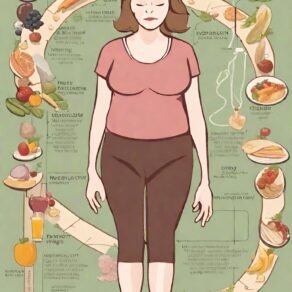Demystifying Menopause: Understanding the Definition and Its Significance
Menopause, a natural biological process, marks the end of a woman’s reproductive years. While most women are familiar with the term, understanding its definition and significance is crucial for navigating this inevitable phase of life with confidence and grace. In this article, we delve into the definition of menopause, its underlying mechanisms, and the implications it holds for women’s health and well-being.
1. What is Menopause?
Menopause marks the permanent halt of menstrual periods caused by declining reproductive hormones, notably estrogen and progesterone. Typically happening between 45 and 55, with an average onset around 51 in the Western world, it’s confirmed after 12 consecutive months without menstruation, indicating the end of fertility.
2. Phases of Menopause:
a. Perimenopause, also known as the menopausal transition, typically begins several years before menopause. During this phase, hormone levels fluctuate, leading to irregular menstrual cycles and various symptoms such as hot flashes, night sweats, mood swings, and vaginal dryness.
b. Menopause: Menopause itself is officially diagnosed when a woman has not had a menstrual period for 12 consecutive months. Estrogen levels continue to decline, leading to symptoms such as hot flashes, sleep disturbances, mood changes, and vaginal dryness.
c. Postmenopause: Postmenopause refers to the years following menopause. Symptoms like hot flashes may decrease, yet women face higher risks of osteoporosis and heart disease due to lower estrogen levels.
3. Significance of Menopause:
Menopause is a significant milestone, signifying the end of reproductive years and the onset of a new aging phase. While it is a natural and inevitable transition, menopause can have profound physical, emotional, and social implications for women.
a. Physical Changes: The hormonal changes associated with menopause can lead to a range of physical symptoms, including hot flashes, night sweats, sleep disturbances, vaginal dryness, and changes in libido. Additionally, menopause is associated with an increased risk of certain health conditions such as osteoporosis, heart disease, and cognitive decline.
b. Emotional Well-being: Menopause can also impact a woman’s emotional well-being, leading to mood swings, irritability, anxiety, and depression in some individuals. Coping with the physical symptoms and adjusting to the changes in fertility and identity can be challenging for many women.
c. Social Implications: Menopause can also have social implications, affecting a woman’s relationships, career, and sense of self. Women may experience shifts in roles, responsibilities, and societal perceptions related to aging and menopause.
4. Conclusion:
Menopause signifies the end of reproductive years and the start of a new phase in a woman’s life. Understanding its definition and significance empowers women to navigate this transition with resilience and self-care. By recognizing its phases, addressing symptoms, and seeking support, women can embrace this stage with confidence and vitality.





Leave a Comment